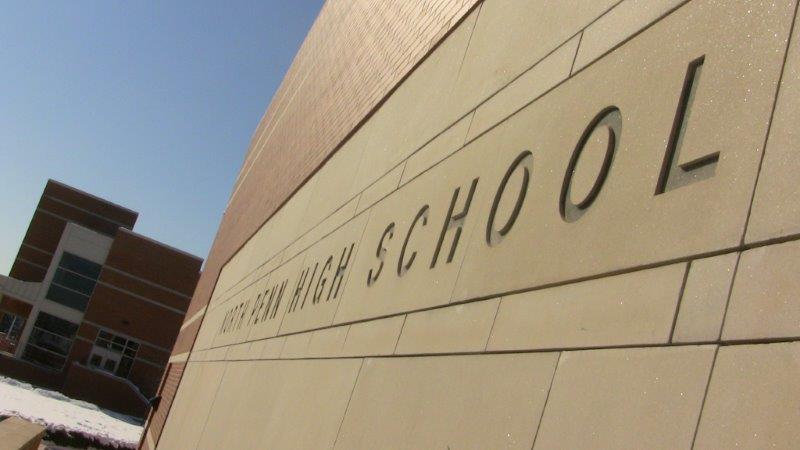With teachers’ contract expired, uncertainty lingers
Image courtesy of www.npsd.phanfare.com
File photo
October 8, 2014
LANSDALE – As North Penn students and staff have settled into the familiar routines of another school year, the North Penn School District and North Penn Education Association have been working behind the scenes to iron out another important matter. The past several months have seen an increase in rumors and speculation regarding the expiration of the teachers’ contract, a contract that officially ran out at the end of the 2013-2014 school year. As it does during every transitional period between contract agreements, word rapidly spreads bearing information from sources of varying credibility, with some flatly dismissing negotiations as nothing to be concerned about and others deeming the process a precursor to the controversial byproduct of a teacher strike. Whatever hearsay is currently circulating, one can be sure that the information gleaned from those closest to the negotiations process is both trustworthy and free of the hysterical hype common to mainstream speculation – and, in the opinion of all officials contacted, community members can rest assured that a satisfying agreement is well within reach.
It is no wonder that misinformation circulates at times, for the process of negotiations is indeed a complicated one. Both sides of the contract debate are assisted by a state-appointed mediator, who aids in bridging differences between the parties as well as adding another layer to an already-complex process.
“Some of the [negotiations] sessions are face-to-face; others are carried on through the mediator,” explained Alan Malachowski, President of the North Penn Teachers’ Union. “As per the Act 195 bargaining law, the process can continue with options which include submitting our proposals to a third-party for review and opinion. The school district and the association, in turn, would present their proposal to an assigned third-party called a fact-finder. The fact-finder would produce a report that each side would then get to review and then vote upon. While these reports often are not accepted by both sides, they can become the basis for a settlement.”
Many issues and parties must be taken into consideration when tackling the task of achieving a satisfying resolution to the contractual interests of all those involved in the negotiations. Tim Kerr, Chairperson for the School Board’s Negotiation Committee, shed some light on the many facets of the process.
“To clarify, there are three different employee groups with whom the District must negotiate as to salaries, benefits, and work rules. These include the administration – other than the Superintendent, Assistant Superintendent, and Business Manager, all of whom have employment contracts – the support staff, and the teachers,” said Kerr. “To date, the Board has finalized an agreement with the administration and continues negotiations with the other two.”
Outlooks on the current state of negotiations seem to differ slightly depending on one’s perspective on the process, but those contacted agree that progress is well within reach in order to arrive at an agreement that is suitable to all interests.
Kerr is confident in the ability of the negotiators to reach a satisfying conclusion, despite the tricky nature of this sort of discussion.
“While the negotiations have been challenging, they have been cordial and a great deal of information has been exchanged to understand each side’s position,” said Kerr. “The current fiscal situation is difficult, and it makes the negotiations that much more challenging, but I’m convinced that agreements satisfactory to all sides will be reached.”
Malachowski is perhaps less certain of the current state of negotiations, but shares similar tentative optimism regarding the contract’s further discussion.
“Not much progress has been made so far,” said Malachowski. “The talks are continuing, and both sides have goals and objectives for the new contract. As long as the two sides keep listening to each other, movement towards a settlement can occur quickly. I am hopeful that can happen sooner rather than later.”
It is only natural for students, parents, and members of the community to worry about the course of action should the two sides be unable to reach satisfying mediation. In 2010, when this occurred, after many unsuccessful attempts at reaching a contractual agreement, a teacher strike resulted – which, of course, is certainly not an ideal situation. Both sides addressed this concern with the hope that it will not become an issue based on the current state of discussion.
“While the Board is always concerned about a strike, I don’t believe any party wants one and I don’t see it in our future,” said Kerr, who explained that discussions would continue until the issues at hand are resolved. Meanwhile, Malachowski regarded the matter with a similarly positive outlook.
“North Penn teachers are in the classroom right now, and that is where we want to remain. As long as progress continues to be made through dialogue and open communication, I am confident that we can agree upon a contract that both validates the hard work that our teachers do every day and is affordable and fair for our community.”
Talks have progressed on and off during the month of September, and further informal and formal negotiation dates are scheduled throughout October. Though there is still much to be done in the process of resolving the issues imperative to getting North Penn’s teachers back under a working contract, those involved in the procedure can confidently lay to rest rumors of any rash or immediate action regarding the contract or a Teachers’ Strike. As the fall season progresses and the school year gets well underway, the North Penn community will keep its finger to the pulse of the negotiations in the hopes that mediation will advance with the same diligence and efficiency as the students and teachers it aims to benefit.











Ray Hopkins • Oct 21, 2014 at 3:02 pm
Great Article Tara. I wish all local news sources could actually present the information in a similar fashion.
Perhaps the district and Mr. Malachowski should give you exclusive access to this issue for the year.
Keep up the great work.
John Gerhart • Oct 9, 2014 at 10:29 am
Teachers should worry more about their students achieving higher standards than about how much money they’re making…..
hayden • Oct 8, 2014 at 3:43 pm
If teachers go on strike,it would make them look greedy and have no regard for who pays them.
hayden • Oct 8, 2014 at 3:32 pm
Teachers should realize that districts do not have superfluous amount of money, our taxes are already high (some do not live in the district to know what we pay) and why are they getting masters when districts can barley afford to pay for bachelors degrees. I think this article is supposed to make students and the community feel bad for teachers when we should not… Currently, the Hatfield Renovations are putting the district in debt. In reality, the tax dollars pay for the teachers salaries.
Curt Reichwein • Nov 21, 2014 at 10:58 am
teachers have no choice but to pursue masters degrees. In order to maintain the professional license needed to teach they must earn 24 credits in the first 6 years of teaching which apply directly to a masters program. So this is a function of maintaining the license and not one of greed.
Ted Trissler • Oct 8, 2014 at 1:31 pm
Well researched, balanced, and written, Tara.
Alan Malachowski • Oct 8, 2014 at 9:48 am
Tara,
You did an excellent job in this article. Keep up the great work. Thank you for fairly representing both sides on this issue.